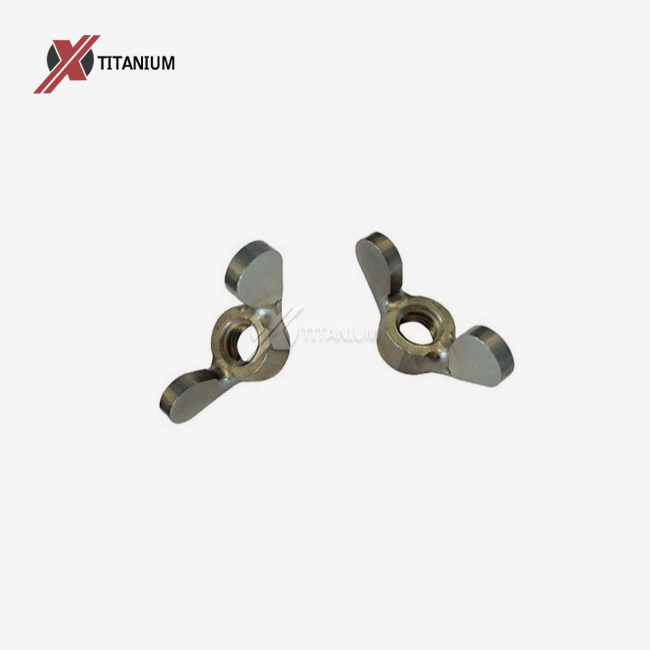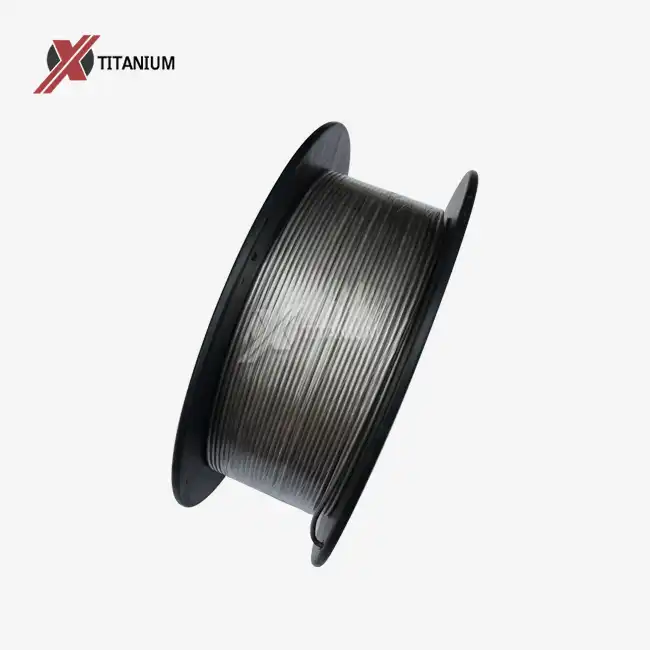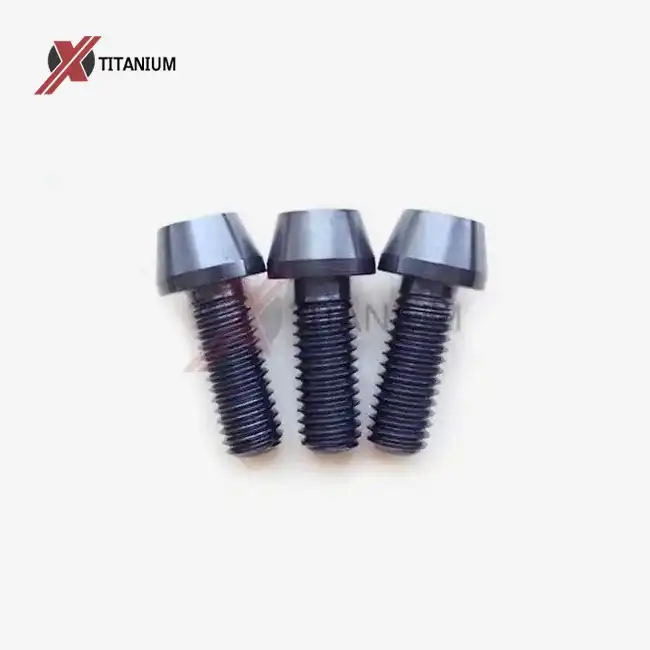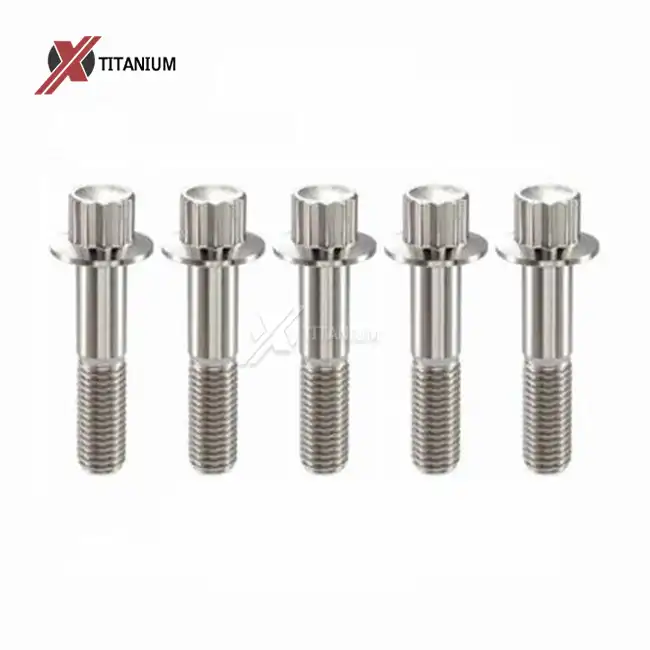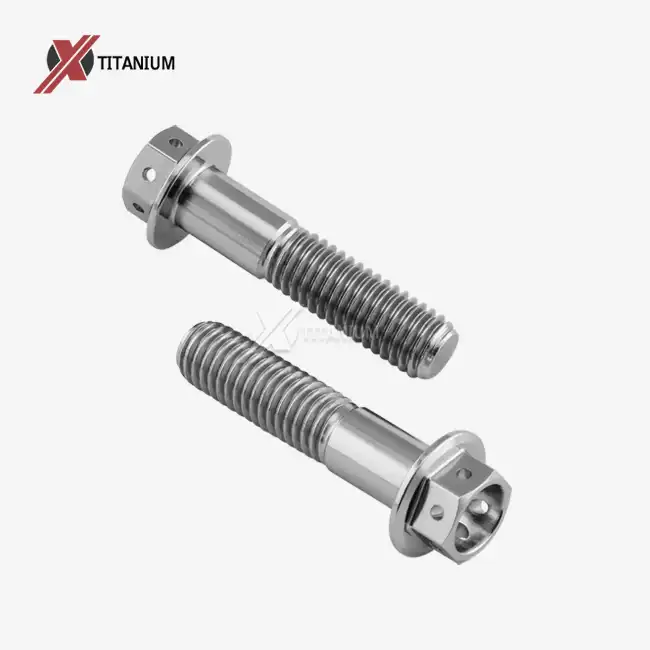Understanding the Unique Properties of Titanium Wing Nuts
Composition and Material Characteristics
Titanium wing nuts are manufactured using high-purity titanium or titanium alloys, most commonly Grade 2 commercially pure titanium or Grade 5 (Ti-6Al-4V) alloy. These materials offer an exceptional combination of strength, lightweight, and corrosion resistance. The atomic structure of titanium forms a stable, protective oxide layer when exposed to air or moisture, which contributes significantly to its corrosion-resistant properties.
Grade 5 titanium, also known as Ti-6Al-4V, contains 6% aluminum and 4% vanadium. This alloy exhibits superior strength-to-weight ratio, with a tensile strength ranging from 900 to 1100 MPa. Despite its strength, titanium remains approximately 45% lighter than steel, making it an attractive option for weight-sensitive applications.
Corrosion Resistance Mechanisms
The exceptional corrosion resistance of titanium wing nuts stems from the formation of a thin, adherent titanium oxide film on the surface. This passivation layer, typically only a few nanometers thick, provides a barrier against chemical attack. The oxide film reforms immediately if damaged, ensuring continuous protection against corrosive environments.
Titanium's resistance extends to various corrosive media, including:
- Saltwater and marine environments
- Chlorides and other halides
- Oxidizing acids (e.g., nitric acid)
- Organic compounds
- Sulfur-containing gases
This broad spectrum of resistance makes titanium wing nuts suitable for use in diverse industries, from offshore oil and gas to chemical processing plants.
Mechanical Properties and Performance
Beyond corrosion resistance, titanium wing nuts boast impressive mechanical properties:
- High strength-to-density ratio
- Excellent fatigue resistance
- Low modulus of elasticity
- Good fracture toughness
- Resistance to stress corrosion cracking
These properties ensure that titanium wing nuts maintain their integrity under various load conditions and cyclic stresses. The low modulus of elasticity allows for some flexing without permanent deformation, which can be advantageous in applications subject to vibration or thermal expansion.
Applications and Industries Benefiting from Titanium Wing Nuts
Aerospace and Aviation
The aerospace industry has long recognized the value of titanium components, including wing nuts. In aircraft construction, every gram matters, and the lightweight nature of titanium wing nuts contributes to fuel efficiency without compromising structural integrity. These fasteners find applications in:
- Airframe assembly
- Engine components
- Landing gear systems
- Interior fittings
The ability of titanium wing nuts to withstand extreme temperature variations and resist corrosion from aviation fluids makes them indispensable in this high-stakes industry.
Marine and Offshore Applications
In marine environments, corrosion is a constant threat. Titanium wing nuts excel in these conditions, resisting the corrosive effects of saltwater and marine organisms. They are utilized in:
- Shipbuilding and repair
- Offshore oil and gas platforms
- Underwater robotics and equipment
- Desalination plants
The long-term cost savings achieved by using corrosion-resistant titanium fasteners often outweigh the initial higher investment, especially in hard-to-reach or submerged locations where maintenance is challenging.
Chemical and Processing Industries
Chemical processing plants and refineries deal with a wide array of corrosive substances. Titanium wing nuts provide reliable fastening solutions in these harsh environments, finding use in:
- Chemical reactors and vessels
- Heat exchangers
- Pumps and valves
- Piping systems
The resistance to both oxidizing and reducing environments makes titanium wing nuts versatile choices for various chemical processes, ensuring equipment integrity and minimizing maintenance downtime.
Selecting and Maintaining Titanium Wing Nuts for Optimal Performance
Factors to Consider in Selection
Choosing the right titanium wing nut for a specific application involves considering several factors:
- Environmental conditions: Temperature, chemical exposure, and mechanical stresses
- Load requirements: Static and dynamic loads the fastener must withstand
- Size and thread specifications: Compatibility with mating components
- Surface finish: Polished, anodized, or other treatments for enhanced performance
- Regulatory compliance: Adherence to industry standards and specifications
Consulting with a knowledgeable supplier or engineer can help in selecting the optimal titanium wing nut for your specific needs.
Installation Best Practices
Proper installation is crucial for maximizing the performance of titanium wing nuts:
- Use appropriate tools to avoid damaging the fastener
- Ensure clean and properly prepared mating surfaces
- Apply correct torque specifications to prevent over-tightening
- Consider using anti-galling compounds if frequent removal is anticipated
- Implement proper alignment to distribute loads evenly
Following these practices helps maintain the structural integrity of the assembly and prevents issues like galling or thread damage.
Maintenance and Inspection Protocols
While titanium wing nuts require minimal maintenance due to their corrosion resistance, periodic inspection and care can ensure long-term reliability:
- Regular visual inspections for signs of wear or damage
- Cleaning with mild detergents to remove dirt or contaminants
- Checking for proper tightness, especially in high-vibration environments
- Documenting and tracking the service life of critical fasteners
- Replacing fasteners if signs of fatigue or corrosion are observed
By implementing a proactive maintenance strategy, you can maximize the lifespan and performance of titanium wing nuts in your applications.
Conclusion
Titanium wing nuts represent a pinnacle in fastener technology, offering unparalleled corrosion resistance coupled with exceptional strength and lightweight properties. Their ability to withstand harsh environments makes them invaluable across various industries, from aerospace to chemical processing. By understanding the unique characteristics of titanium wing nuts and implementing proper selection, installation, and maintenance practices, engineers and technicians can harness their full potential to enhance the reliability and longevity of critical equipment and structures.
For more information on titanium wing nuts and other high-performance titanium products, please contact Baoji Chuanglian New Metal Material Co., Ltd. at info@cltifastener.com or djy6580@aliyun.com. Our team of experts is ready to assist you in finding the perfect titanium fastening solutions for your specific needs.
